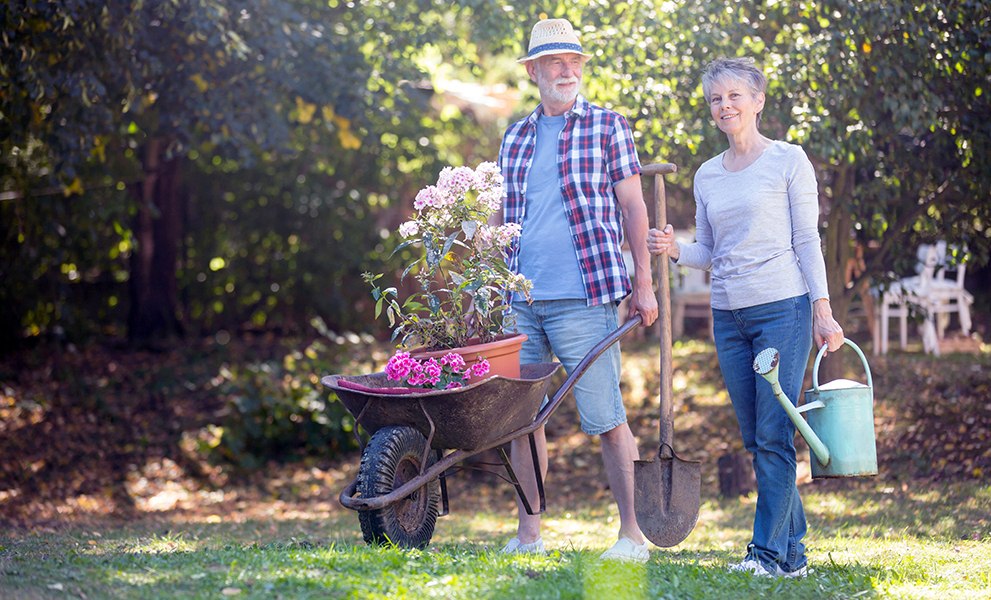

Gardening For Your Life
As any experienced gardener knows, working in your yard and gardens is very satisfying. Mulching, weeding, and seeing the plants bloom gives many an emotional and mental boost.
Gardening also relates to many desirable health benefits. According to the Centers for Disease Control, "gardening is an excellent way to get physical activity." And physical activity is a great way to ward off lots of common diseases, like type 2 diabetes, osteoporosis, heart disease, stroke, depression, colon cancer and more.
Sadly, there are some risks of injury while gardening. Gardening incorrectly can lead to back pain, joint aches, and muscle strain. I would like to share some advice for gardening safely. Developed by occupational therapists with cooperation from the American Occupational Therapy Association, the following tips, you will be able to enjoy an injury-free gardening season and all of the physical, emotional, mental benefits that go with it.
* Start slow. If you are not accustomed to gardening, plan a garden on the small side. If you have difficulty reaching down to the ground or getting into a kneeling positioning, consider raised beds or small planters you can conveniently place at waist height. Locate your garden near your house or water supply to reduce effort hauling water or the hose to your garden. Consider the effort each plant will take to maintain. Native plants, perennials (those that return year after year), small plants (that require no pruning) and ground cover (which diminish weed growth) are all good choices for beginning gardeners. Remember that you can always replace low-maintenance plants with more exotic ones as you build your skills and strengths.
* Gear. Nobody wants to spend a fortune on gardening gear, especially when you would rather prefer buying plants and mulch. But there are a few well-considered purchases that can decrease your risk of injury in the garden. Consider a light-weight, self-coiling hose for instance. If you are buying a new hose anyway, they are worth the little extra expense. For some, a kneeler seat, which is a combination kneeling platform and seat, is a good value. Many kneeler seats fold for easy storage or feature a storage compartment and wheels to make transporting tools easier. If you have a weak grip, use tools with padded or curved handles and pruners and clippers that have ratcheting or spring-action self-opening features.
* Form. Many of the tips you sometimes hear related to other types of physical labor work for gardening too. Lift with your knees. Avoid twisting and reaching, which puts you off balance and at risk of falling. In addition, try kneeling with one leg, rather than two. It will help protect your back. Also, resist the urge to focus on just one area of the garden at a time, and instead move around doing various tasks. This will allow you to avoid overstressing one part of the body. Changing your position prevents stiffness. Even, gripping or pinching a tool for a prolonged period can lead to swelling in your hands and arms.
* Maybe the most important tip is this: don’t rush. Gardening is all about relaxing and enjoying the work and the results. Take rest breaks every 15 minutes and stop work before you become overtired.
Take these tips together with your own garden design preferences and a few sunny days, and you are on your way to a beautiful garden and a healthier life.
Michaelia St. Jacques, MS, OTR/L, CWCE, is an occupational therapist with Southwestern Vermont Medical Center's Outpatient Rehabilitation Department. She is a certified functional capacity evaluator and helps patients return to work and other activities they love safely. "Health Matters" is a column meant to educate readers about their personal health, public health matters, and public policy as it affects health care. For more stories like this one, visit svhealthcare.org/wellnessconnection.

Tags: SVMC,






















